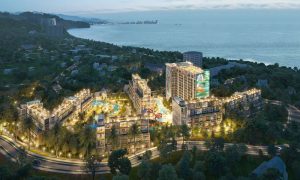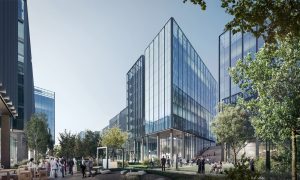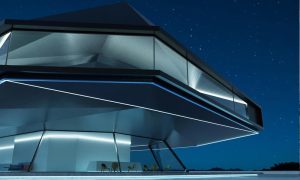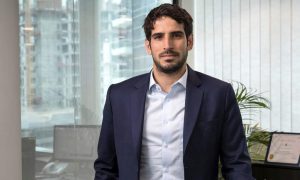Majid Al Futtaim sets ambitious sustainability targets for Tilal Al Ghaf
Community to be first in Dubai to achieve ‘very good’ level BREEAM environmental sustainability accreditation

Majid Al Futtaim, the UAE-based retail, leisure and residential community real estate developer, has said that it has ambitious sustainability targets for its new flagship Dubai community – Tilal Al Ghaf.
In a statement, the developer said that it plans for the community to become the first mixed-use development in the Emirate to achieve a ‘very good’ rating under the BREEAM sustainability accreditation programme.
As per the BEERAM assessment, energy, water and waste will be amongst the key metrics measured to enhance Tilal Al Ghaf’s environmental, social and economic sustainability performance, the developer said. It added that extensive on-site generation of solar power would be a key pillar of the community’s sustainability strategy.
Majid Al Futtaim intends to produce 20% of the community’s energy needs from renewable solar power, while also transferring surplus electricity to DEWA through the Shams Dubai initiative, which went live in 2017.
To achieve this, the first offering of upper-luxury villas and bungalows, launched in April 2018, will offer rooftop photovoltaic solar panels as a standard feature, providing 45% of energy needs, along with solar hot water heating and top-notch air conditioning systems, the developer explained.
In addition, solar panels will be offered as options on other single-family buildings and installed on public buildings across the community. Public spaces will be lit by solar-powered streetlights and renewable energy will be deployed alongside smart technology to reduce energy consumption, it added.
“Majid Al Futtaim sets itself apart by not just selling bricks and mortar, but also making a steadfast commitment to the community beyond delivering homes by setting long-term goals to enhance its green footprint,” said the CEO of Majid Al Futtaim Communities, Hawazen Esber.
“We are taking an ambitious but practical, viable, and achievable approach to sustainability that will not only have environmental benefits, but in the long-run will also deliver financial savings for residents to create a healthy and balanced community living.”
Other environmental targets include a 55% reduction in the project’s carbon footprint, and 25% reduction in potable water demand. All water bodies, such as the fully swimmable Crystal Lagoon, will be topped up using ground water. This will relieve pressure on the water table, which is rising across much of Dubai.
Homes will be fitted with water filters to provide pure drinking tap water and reduce consumption of bottled water, potentially saving 200 tonnes of plastic waste every year. During building, 60% of construction waste will be diverted from landfill, and 30% of waste will be recycled during operation, with 80% of organic waste recycled as compost for the community’s parks and gardens, Esber added.
“There is a growing number of consumers who want to make positive change in their world and in their community, and Majid Al Futtaim supports that in our vision for Tilal Al Ghaf,” he said.
“Our initial offering of Harmony and Serenity villas and bungalows will provide quality that lasts, and residents see eco-features such as solar power as making an important investment in the future, taking a step beyond merely buying fashionable luxuries for today.”
Spanning three million square metres at the intersection of Hessa Street and Sheikh Zayed Bin Hamdan Al Nahyan Street, near Dubai Sports City, Tilal Al Ghaf is a phased project that will include more than 6,500 freehold homes when complete by 2027, ranging from apartments, townhouses and bungalows, through to substantial luxury villas.
























